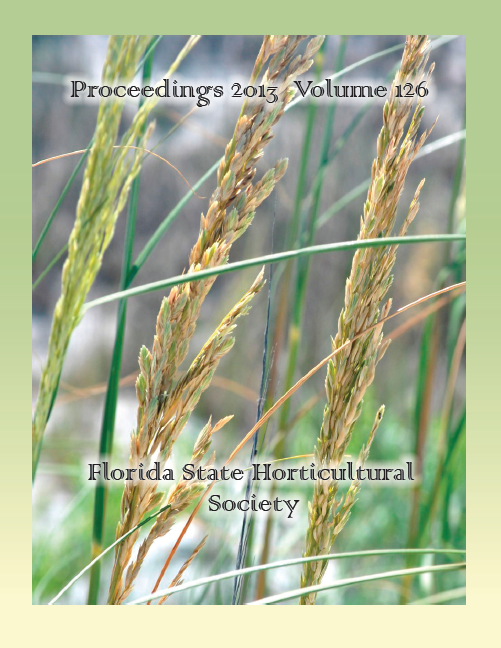Effectiveness of Biological Insecticides in Controlling the Diamondback Moth (Lepidoptera: Plutellidae) on Cabbage
Abstract
Diamondback moth (DBM), Plutella xylostella (L.), is a major pest of cabbage (Brassica oleracea) that has developed resistance against most of the known classes of insecticides. Sole reliance on an insecticide or a group of insecticides is the principal cause of development of resistance. As an effort to develop a management program, we evaluated Bacillus thuringiensis (BT)-based biological insecticide in controlling DBM. All formulations of BT-based biological insecticide provided significant reduction of all growth stages of DBM and feeding damage on foliage was significantly reduced. Chemical insecticides showed potential for reducing DBM populations on cabbage. BT-based insecticides showed similar effectiveness as the chemical insecticides in controlling DBM. Feeding damage on foliage was significantly less on plants treated with BT or chemical insecticides than on the nontreated control. These results suggest that BT-based insecticides can be used in a management program with chemical insecticides to control DBM. This management strategy will delay the development of resistance in DBM against any specific insecticide.

